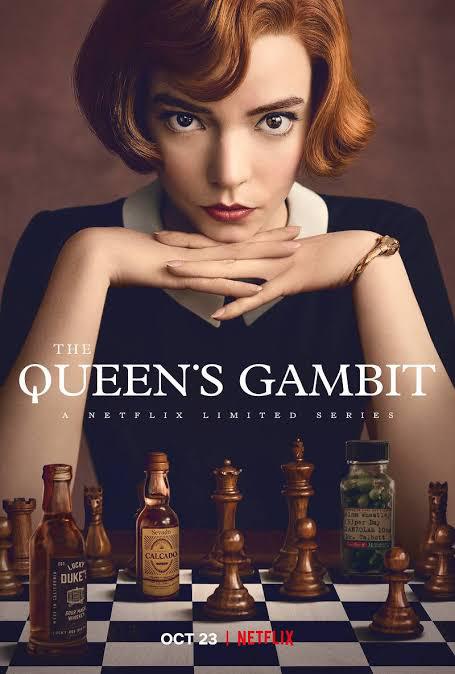The Queen’s Gambit is possibly the most boring name you could name anything you planned to entertain people with. The synopsis on Netflix doesn’t help the name much either:
“In a 1950s orphanage, a young girl reveals an astonishing talent for chess and begins an unlikely journey to stardom while grappling with addiction.”
So yeah, Queen’s Gambit is not a period piece with lots of ball gowns – this a miniseries mostly about the longest board game ever invented. Yet, it is Netflix’s most-watched scripted limited series, with over 62 million account user views during its first month. So, how in the world did it manage that? That’s what I wondered and what compelled me to watch this show.
Based on the novel of the same name by Walter Tevis, the series follows a young Beth Harmon (Anya Taylor-Joy), as she is abandoned and entrusted to a Kentucky orphanage in the late 1950s and discovers an astonishing talent for chess while developing an addiction to tranquilizers provided by the state as a sedative for the children. Haunted by her personal demons and fueled by a cocktail of narcotics and obsession, Beth transforms into an impressively skilled and glamourous outcast while trying to conquer the traditional boundaries established in the male-dominated world of competitive chess.
Now, Anya Taylor-Joy is very talented; she has shown this time and time again, starring in the 2016 movie Split and the subsequent Glass, and, before those, The Witch, and many movies after, accruing nearly 30 big and small screen credits over the past five years, and she proved herself yet again in this movie.
What brings this movie to life is the character Taylor-Joy brings to the screen. She facilitates a seamless combination of the complexity of chess and the realm of style. Chess masters Bruce Pandolfini and Garry Kasparov consulted on the show and taught Taylor-Joy how to move the pieces like a professional, but she told Chess Life magazine that she developed her own way of gliding across the board – adding additional depth and believability to the character.
The film shows growth, emotional growth, life growth, and growth in her game. I like the fact that the film shows that, yeah, natural talent is great and it will get you somewhere, but you still need to put in effort, time, and hard work in order to make it blossom.
The chess, my goodness, THE CHESS! The chess sequences are all electric, and it’s different each time. One will make your heart thump wildly in your chest, another will make you cry, and a third will annoy you so much to make you want to chuck something at the screen. It’s a show that slowly reels the viewer in until they are so invested that when the main character is sad, they are sad, and when she wins, it’s a win for them too.
The show, while concise, is both compelling in its theme and is at the same time a directorial masterpiece. It takes something that is generally perceived as boring, chess, and brings it to life with its brilliant pacing, terminologies understandable by everyone, nicks of fantastic cinematography. As somebody who has no idea how to play chess, the show doesn’t make me want to go out immediately to get a chess board, but it definitely makes me a lot more interested in the game.




